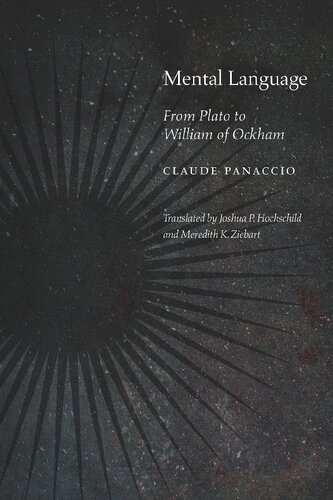

Most ebook files are in PDF format, so you can easily read them using various software such as Foxit Reader or directly on the Google Chrome browser.
Some ebook files are released by publishers in other formats such as .awz, .mobi, .epub, .fb2, etc. You may need to install specific software to read these formats on mobile/PC, such as Calibre.
Please read the tutorial at this link. https://ebooknice.com/page/post?id=faq
We offer FREE conversion to the popular formats you request; however, this may take some time. Therefore, right after payment, please email us, and we will try to provide the service as quickly as possible.
For some exceptional file formats or broken links (if any), please refrain from opening any disputes. Instead, email us first, and we will try to assist within a maximum of 6 hours.
EbookNice Team

Status:
Available4.5
26 reviewsThe notion that human thought is structured like a language, with a precise syntax and semantics, has been pivotal in recent philosophy of mind. Yet it is not a new idea: it was systematically explored in the fourteenth century by William of Ockham and became central in late medieval philosophy. Mental Language examines the background of Ockham's innovation by tracing the history of the mental language theme in ancient and medieval thought.
Panaccio identifies two important traditions: one philosophical, stemming from Plato and Aristotle, and the other theological, rooted in the Fathers of the Christian Church. The study then focuses on the merging of the two traditions in the Middle Ages, as they gave rise to detailed discussions over the structure of human thought and its relations with signs and language. Ultimately, Panaccio stresses the originality and significance of Ockham's doctrine of the oratio mentalis (mental discourse) and the strong impression it made upon his immediate successors.